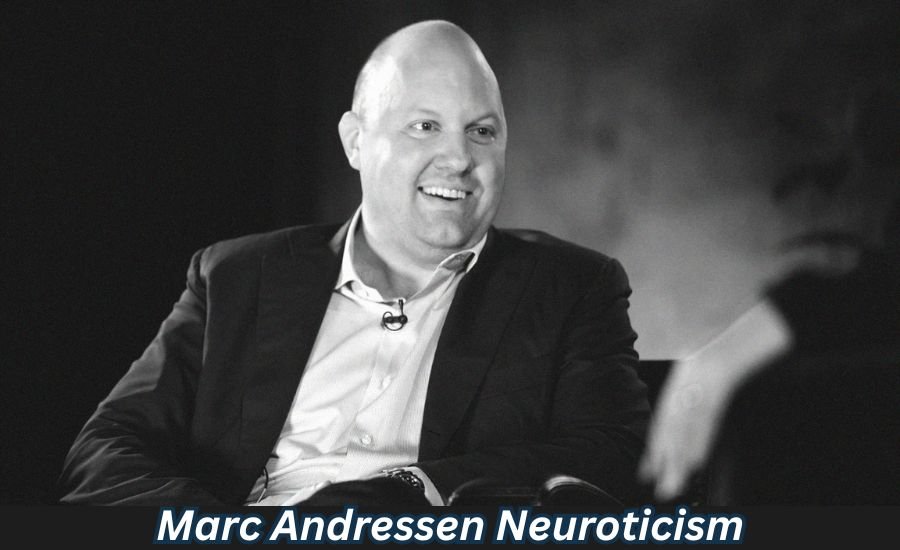Marc Andressen Neuroticism is a captivating aspect that reveals the complexities behind one of Silicon Valley’s most transformative figures. As a co-founder of Netscape and a leading investor in pioneering companies, Andreessen’s personality traits, particularly his inclination toward neuroticism, profoundly influence his innovative thinking and strategic decisions. By examining how these traits impact his approach to risk and creativity, we can uncover valuable insights not only about Andreessen himself but also about the dynamics of leadership in the tech industry. Here at Wiki247, we aim to explore these intricate connections further.
In our rapidly evolving technological landscape, the characteristics that define influential leaders like Andreessen are essential for navigating the uncertainties of modern business. Investigating “Marc Andressen Neuroticism” allows us to explore how this personality trait shapes his vision and influences his capacity to embrace challenges. This analysis offers lessons for entrepreneurs and tech enthusiasts alike, helping them understand the interplay between personality and success in an industry marked by constant change.
Understanding Neuroticism: A Key to Marc Andreessen Success
Neuroticism, characterized by emotional instability and anxiety, has played a significant role in the success of tech entrepreneur Marc Andreessen. By being attuned to his emotions, Andreessen can navigate the volatile landscape of the tech industry more effectively. This trait enables him to assess risks and make informed decisions, enhancing his capabilities as a leader and innovator. Recognizing his neurotic tendencies allows him to transform potential vulnerabilities into strengths, focusing on areas that need improvement, which has led to his successful ventures in technology.
In the business world, understanding neuroticism can be advantageous. Individuals with this trait often exhibit caution and attention to detail—qualities that are crucial in tech, where even minor errors can have significant consequences. Andreessen’s self-awareness not only benefits him personally but also influences the teams and companies he leads, fostering an environment where team members feel safe to express ideas and take calculated risks, which is essential for innovation.
The Role of Neuroticism in Tech Innovation: Lessons from Marc Andreessen
Neuroticism can play a surprisingly impactful role in tech innovation, as demonstrated by Marc Andressen. The trait of “Marc Andressen Neuroticism” is evident in his career through his unique blend of introspection and concern for improvement. This mindset not only drives him to push technological boundaries but also enables Marc Andressen’s neuroticism to fuel a process of relentless questioning and critical analysis. This dedication to exploring new ideas and solutions has allowed him to remain at the forefront of the tech world.
Furthermore, Marc Andressen Neuroticism is a catalyst that pushes him to explore uncharted areas within the tech industry. His acute awareness of competition and market shifts encourages him to innovate proactively, thereby helping his companies maintain a competitive edge. By channeling his neurotic tendencies constructively, Marc Andressen inspires other tech leaders to embrace similar qualities in pursuit of groundbreaking innovations.
Lastly, Marc Andressen Neuroticism also manifests in his collaborative approach to leadership. By working with diverse teams to brainstorm and develop strategies, he shows how neuroticism, when harnessed properly, can lead to creative and practical solutions. Andressen’s experiences serve as a powerful reminder that neurotic traits, far from being a hindrance, can drive transformative advancements in technology.
Analyzing the Impact of Marc Andreessen’s Neuroticism on Leadership
- Emotional Sensitivity and Team Connection:
- Enhances emotional sensitivity, allowing for deeper connections with team members.
- Fosters trust and openness, essential for effective teamwork.
- Creates a culture where individuals feel valued and understood, boosting morale and productivity.
- Critical Reflection and Informed Decision-Making:
- Encourages critical reflection before decision-making, anticipating potential challenges.
- Helps devise effective strategies, leading to better outcomes for ventures.
- Demonstrates how recognizing neuroticism can improve leadership practices by mitigating risks.
- Adaptability and Self-Awareness:
- Promotes the idea that leaders can adapt their styles based on neurotic traits.
- Enhances effectiveness by allowing leaders to tailor their interactions to meet diverse emotional needs.
- Transforms potential vulnerabilities into strengths, fostering resilience and innovation.
- Shaping Organizational Culture:
- Encourages transparency and vulnerability, leading to a supportive team environment.
- Stimulates creativity as team members feel comfortable sharing ideas and concerns.
- Cultivates a safe space for experimentation and growth, essential for competitive markets.
- Conclusion: The Value of Neuroticism in Leadership:
- Highlights the profound impact of neuroticism on leadership style.
- Emphasizes the importance of self-awareness and emotional intelligence.
- Shows that when harnessed effectively, neurotic traits can contribute to greater success in the tech industry.
The Bright Side of Neuroticism: Turning Traits into Triumphs
Although neuroticism is often perceived negatively, Marc Andreessen exemplifies its positive aspects. His emotional awareness fuels creativity, enabling him to devise innovative technologies. Andreessen’s propensity for worry often translates into out-of-the-box thinking, allowing him to discover unique solutions that may be overlooked by others.
Neuroticism also plays a crucial role in risk assessment. Andreessen’s careful evaluation of potential outcomes safeguards his investments and supports the growth of his companies. His neurotic tendencies ultimately lead to practical triumphs in the competitive tech landscape.
Furthermore, by embracing neuroticism, Andreessen fosters a culture of resilience. He showcases that confronting fears and challenges can result in significant growth. This perspective encourages many in the tech industry to view their emotional sensitivity as a strength rather than a hindrance.
Balancing Neuroticism and Leadership: Insights from Marc Andreessen’s Career

Finding a balance between neuroticism and effective leadership is vital, and Marc Andreessen serves as an exemplary model. His ability to manage his emotions plays a crucial role in his achievements. By acknowledging his neurotic traits, he channels them positively, enabling effective team leadership and sound decision-making.
Self-reflection is one strategy Andreessen employs to achieve this balance. He takes time to assess his feelings and thoughts, helping him recognize emotional triggers and respond to challenges without becoming overwhelmed. This emotional intelligence is particularly important for leaders operating in high-pressure environments.
Moreover, Andreessen champions open communication within his teams. By encouraging discussions about emotions and challenges, he creates a supportive atmosphere that fosters collaboration and innovation. His journey highlights the importance of balancing neuroticism with strong leadership skills.
You May Also Like: Pomezenski
From Challenges to Opportunities: Neuroticism in the Mind of Marc Andreessen
Transforming Challenges into Growth
Marc Andreessen’s perspective transforms challenges into opportunities, driven by his neuroticism. His tendency to contemplate potential issues compels him to seek solutions proactively. Rather than shying away from challenges, he perceives them as avenues for growth—a mindset that has led to numerous successes throughout his career.
Staying Ahead of the Curve
Additionally, Andreessen’s neuroticism keeps him ahead of the curve. His constant evaluation of risks and market conditions enables him to adapt swiftly, a crucial trait in the fast-moving tech industry. His ability to turn challenges into opportunities distinguishes him as a leader.
Cultivating Resilience in Teams
By embracing neuroticism, Andreessen cultivates resilience within his teams. He encourages viewing setbacks as learning experiences, fostering a culture of perseverance. This attitude is essential in technology, where failures often pave the way for future successes. Andreessen’s approach reveals that neuroticism can be a powerful asset in navigating the tech landscape.
Neuroticism as a Catalyst: How Marc Andreessen Drives Change in Tech
Neuroticism acts as a catalyst for change throughout Marc Andreessen’s career. His emotional responses to market dynamics and industry trends motivate him to drive innovation actively. Recognizing the need for change is essential for achieving success in technology, and Andreessen’s neurotic tendencies compel him to act when others hesitate.
Moreover, Andreessen leverages his neuroticism to challenge existing paradigms. His critical thinking encourages boundary-pushing and the generation of groundbreaking ideas. By questioning the status quo, he creates new opportunities for innovation, distinguishing himself as a transformative leader.
Lastly, Andreessen’s experiences illustrate how embracing neuroticism can inspire others. By sharing his journey, he empowers future leaders to acknowledge and utilize their emotional traits. This empowerment can cultivate a new wave of innovators who see neuroticism as a source of strength. Andreessen’s influence on the tech industry demonstrates that neuroticism can catalyze meaningful change.
Learning from Marc Andreessen: Embracing Neuroticism in Business Strategies
Marc Andreessen’s experiences provide valuable lessons on embracing neuroticism in business strategies. His journey demonstrates that this personality trait can be advantageous. By understanding and utilizing neuroticism, individuals can develop distinctive problem-solving approaches. Andreessen’s success highlights the importance of emotional awareness in business settings.
Here are concise strategies inspired by Marc Andreessen’s approach to embracing neuroticism in business:
- Emotional Awareness: Cultivating an understanding of emotional responses can enhance decision-making. Leaders should prioritize training in emotional intelligence to improve team dynamics (Harvard Business Review).
- Critical Thinking: Encourage reflective practices and open critique among team members to foster innovative problem-solving (Forbes).
- Safe Environment for Expression: Create a culture that allows team members to freely express their thoughts and feelings, thereby enhancing collaboration and creativity (Inc.).
- Emotional Insights for Creativity: Leverage emotional perspectives to drive innovation. Workshops that promote sharing feelings can lead to unique solutions (Design Thinking resources).
- Resilience Building: View neuroticism as a source of strength. Provide training that helps teams manage stress and see challenges as growth opportunities (Psychology Today).
The Intersection of Innovation and Neuroticism: A Study of Marc Andreessen
The intersection of innovation and neuroticism is evident in Marc Andreessen’s career. His emotional sensitivity often drives him to explore new concepts and solutions, setting him apart in the tech industry. Andreessen’s experiences reveal how neuroticism can lead to creative breakthroughs and transformative technologies.
Moreover, neuroticism can enhance problem-solving skills. His inclination to worry prompts deep analysis of situations, enabling him to identify challenges and develop innovative solutions. For more on Marc Andreessen’s views on neuroticism, a quick search on Google reveals insightful perspectives. Viewing neuroticism as a creative tool encourages others to approach their own challenges with renewed perspectives.
Lastly, Andreessen’s journey illustrates how emotional awareness can fuel innovation. By recognizing his feelings and reactions, he adapts effectively to changing circumstances—a crucial trait in the fast-paced tech environment. The intersection of innovation and neuroticism shows that understanding one’s emotional landscape can lead to remarkable achievements.
Harnessing Neuroticism: Marc Andreessen Approach to Overcoming Adversity
Marc Andreessen demonstrates that harnessing neuroticism is a powerful strategy for overcoming adversity. His emotional awareness empowers him to confront challenges directly. Rather than succumbing to anxiety, he channels it into proactive measures, a necessary approach in the high-stakes tech landscape.
Furthermore, Andreessen’s determination to face obstacles exemplifies resilience. He views adversity as an opportunity for learning and growth. By adopting this mindset, he encourages his teams to persist through challenges, fostering a culture of innovation and progress.
Ultimately, Marc Andreessen’s journey illustrates that neuroticism can serve as a source of strength. By embracing his emotional traits, he formulates strategies that contribute to his success. His experiences highlight how individuals can leverage neuroticism to navigate obstacles and achieve their goals in business.
Conclusion
In conclusion, Marc Andreessen’s neuroticism is an important part of his leadership style. His ability to understand and connect with his team helps everyone work better together. When leaders show they care about their team members’ feelings, it creates a friendly environment. This makes people feel safe to share their ideas, which can lead to great new projects and solutions.
Moreover, Andreessen’s thoughtful approach to making decisions helps him see problems before they happen. By thinking carefully and planning ahead, he can guide his team through challenges more easily. This shows that being aware of our feelings and how they affect us can help us be better leaders. In the end, Andreessen’s story teaches us that sometimes, what we think are weaknesses can actually be strengths.
Read Next: Melissassia
FAQs
Q: What is neuroticism?
A: Neuroticism is a personality trait characterized by emotional instability, anxiety, and moodiness. People high in neuroticism may experience negative emotions more frequently than those with lower levels.
Q: How does Marc Andreessen’s neuroticism influence his leadership?
A: Marc Andreessen’s neuroticism helps him connect emotionally with his team, allowing for better communication and trust. It also encourages careful decision-making, as he tends to anticipate challenges before they arise.
Q: What are the benefits of emotional sensitivity in leadership?
A: Emotional sensitivity in leadership fosters a supportive team environment, improves collaboration, and encourages team members to share ideas openly, leading to increased creativity and innovation.
Q: Can neuroticism be a positive trait in leadership?
A: Yes, neuroticism can be positive in leadership when it drives self-awareness and critical thinking. It can help leaders recognize potential risks and adapt their strategies accordingly.
Q: How can leaders develop their emotional intelligence?
A: Leaders can develop emotional intelligence by practicing self-reflection, seeking feedback from others, and learning to recognize and manage their emotions and those of their team members.
Q: What lessons can other leaders learn from Andreessen’s approach?
A: Other leaders can learn the importance of self-awareness, emotional connection, and adaptability. Embracing their own traits can help them lead more effectively in fast-paced environments.
Q: Is it common for leaders to experience neuroticism?
A: Yes, many leaders may exhibit some level of neuroticism. Understanding and managing these traits can enhance their leadership effectiveness and improve team dynamics.




